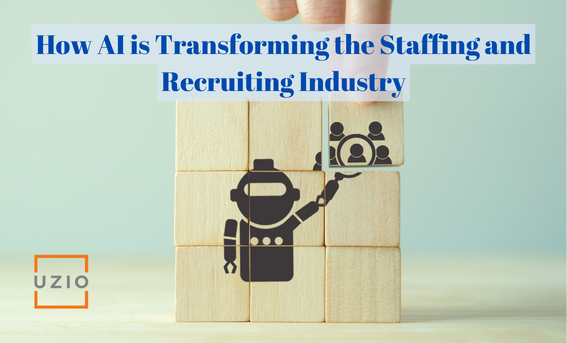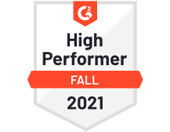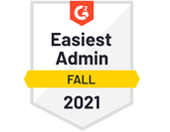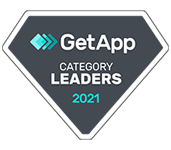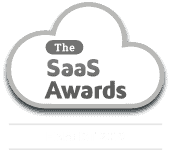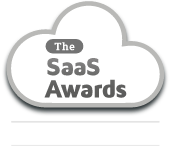1. Introduction
Imagine a world where staffing and recruiting agencies can source, screen, and select the best candidates for their clients with unprecedented efficiency and accuracy. A world where bias is eliminated, and the candidate experience is enhanced. A world where staffing and recruiting agencies can make better decisions about their recruitment strategy and improve their overall performance.
This is the future of AI in recruitment.
AI is already being used by staffing and recruiting agencies in a variety of ways, and its impact on the industry is only going to grow in the years to come. To stay competitive, leading companies are turning to recruiting automation to more effectively source and engage candidates and reduce reliance on job boards. This improves core hiring metrics such as cost-per-hire, time-to-hire, and time-to-fill. In this blog post, we’re going to take a look at how AI is providing a competitive edge for staffing and recruiting agencies in 2023, and how it’s shaping the future of recruitment.
2. Increased efficiency
AI can help staffing and recruiting agencies to automate many of the time-consuming tasks involved in the recruitment process, such as:
- Sourcing candidates: AI can scan through millions of resumes and online profiles to identify the most qualified candidates for a role.
- Screening resumes: AI can screen resumes for keywords and skills, and identify candidates who meet the basic requirements for a role.
- Scheduling interviews: AI can schedule interviews with candidates and recruiters, and send reminders to both parties.
- Collecting feedback: AI can collect feedback from candidates and recruiters after interviews, and use this feedback to improve the recruitment process.
By automating these tasks, AI can free up recruiters to focus on more strategic tasks, such as building relationships with candidates and clients.
3. Improves candidate selection
AI can help staffing and recruiting agencies to improve candidate selection by:
- Identifying hidden talent: AI can identify candidates who have the skills and experience that are required for a role, even if they don’t have the traditional qualifications.
- Reducing bias: AI can help to reduce bias in the recruitment process by identifying and eliminating unconscious biases.
- Improving matching: AI can use machine learning algorithms to match candidates to roles with a high degree of accuracy.
By using AI to improve candidate selection, staffing and recruiting agencies can help their clients to hire the best possible candidates for their roles.
With the use of tools like RecruitingCRM – free software for agencies and independent recruiters, you can get valuable support in managing candidate data, communications, and the overall recruitment workflow.
4. Reduced bias
AI can help staffing and recruiting agencies to reduce bias in the recruitment process by:
- Identifying unconscious biases: AI can be used to identify unconscious biases in the recruitment process, such as bias based on gender, race, or age.
- Eliminating biased language: AI can be used to eliminate biased language from job descriptions and other recruitment materials.
- Blind screening: AI can be used to blind screen resumes and online profiles, so that recruiters can focus on the skills and experience of the candidates, rather than their personal characteristics.
By reducing bias in the recruitment process, staffing and recruiting agencies can help to create a more inclusive and equitable workplace.
5. Enhanced candidate experience
AI can help staffing and recruiting agencies to enhance the candidate experience by:
- Providing personalized feedback: AI can be used to provide personalized feedback to candidates on their resumes and interviews.
- Keeping candidates informed: AI can be used to keep candidates informed about the status of their application, and to provide them with updates on the recruitment process.
- Creating a self-service portal: AI can be used to create a self-service portal where candidates can manage their applications, update their information, and schedule interviews.
By enhancing the candidate experience, staffing and recruiting agencies can attract and retain the best possible candidates.
6. Improves cost efficiency
AI can help staffing and recruiting agencies to enhance their recruitment data by:
- Collecting data from a variety of sources: AI can collect data from a variety of sources, such as resumes, online profiles, social media, and employee surveys.
- Analyzing data to identify trends: AI can analyze recruitment data to identify trends, such as the most in-demand skills and the most effective recruitment channels.
- Using insights to improve the recruitment process: AI can be used to use insights from recruitment data to improve the recruitment process.
By enhancing their recruitment data, staffing and recruiting agencies can make better decisions about their recruitment strategy and improve their overall performance.
7. Enhanced recruitment data
AI can help staffing and recruiting agencies to enhance their recruitment data by:
- Collecting data from a variety of sources: AI can collect data from a variety of sources, such as resumes, online profiles, social media, and employee surveys.
- Analyzing data to identify trends: AI can analyze recruitment data to identify trends, such as the most in-demand skills and the most effective recruitment channels.
- Using insights to improve the recruitment process: AI can be used to use insights from recruitment data to improve the recruitment process.
By enhancing their recruitment data, staffing and recruiting agencies can make better decisions about their recruitment strategy and improve their overall performance.
8. AI in staffing and recruiting SWOT Analysis
This SWOT analysis table highlights the key strengths, weaknesses, opportunities, and threats associated with the use of AI in staffing and recruiting. It is important for staffing and recruiting agencies to weigh these factors carefully when deciding whether or not to implement AI solutions.
| Strengths | Weaknesses | Opportunities | Threats |
|---|---|---|---|
| Increased efficiency | Cost of AI implementation | New markets and clients | AI bias |
| Improved candidate selection | Lack of AI expertise | Improved brand reputation | Job displacement |
| Reduced bias | Data privacy concerns | Global reach | Ethical concerns |
| Enhanced candidate experience | AI security risks | Increased innovation | Regulatory challenges |
| Improves cost efficiency | Regulatory uncertainty | Improved employee productivity | Competition from other AI-powered staffing and recruiting agencies |
| Enhanced recruitment data | Difficulty explaining AI decisions | Improved employee retention | - |
9. Future of AI in recruitment
AI is still in its early stages of development, but it has the potential to revolutionize the staffing and recruiting industry in the years to come.
Here are a few ways that AI could be used in recruitment in the future:
- Predictive analytics: AI could be used to predict which candidates are most likely to be successful in a role, based on their skills, experience, and personality traits. This could help staffing and recruiting agencies to make better hiring decisions and improve the quality of their hires.
- Virtual reality (VR): VR could be used to create immersive experiences for candidates, such as virtual tours of the workplace or simulations of job tasks. This could help candidates to get a better understanding of the role and the company, and to make more informed hiring decisions.
- Blockchain: Blockchain could be used to create a secure and tamper-proof record of candidate data. This could help to reduce fraud and improve the efficiency of the recruitment process.
- Chatbots: Chatbots could be used to provide 24/7 support to candidates and recruiters. This could help to improve the candidate experience and to answer questions more quickly and efficiently.
These are just a few ways that AI could be used in recruitment in the future. As AI technology continues to develop, we can expect to see even more innovative and transformative applications of AI in the recruitment industry.
In addition to the above, AI could also be used to:
- Personalize the candidate experience: AI could be used to personalize the candidate experience by providing tailored feedback, job recommendations, and career advice.
- Improve diversity and inclusion: AI could be used to identify and reduce bias in the recruitment process, and to promote diversity and inclusion in the workplace.
- Enhance employee retention: AI could be used to identify and address employee engagement and retention issues.
Overall, AI has the potential to revolutionize the staffing and recruiting industry by making it more efficient, effective, and equitable.
10. Conclusion
AI is providing a competitive edge for staffing and recruiting agencies in 2023, and it’s shaping the future of recruitment. By automating tasks, improving candidate selection, reducing bias, and enhancing the candidate experience, AI is helping staffing and recruiting agencies to become more efficient, effective, and profitable.
If you’re a staffing or recruiting agency owner or decision maker, we encourage you to learn more about how AI can help you to achieve your business goals.
Get in touch with us for an expert-led demo to know more about UZIO all-in-one payroll software.
